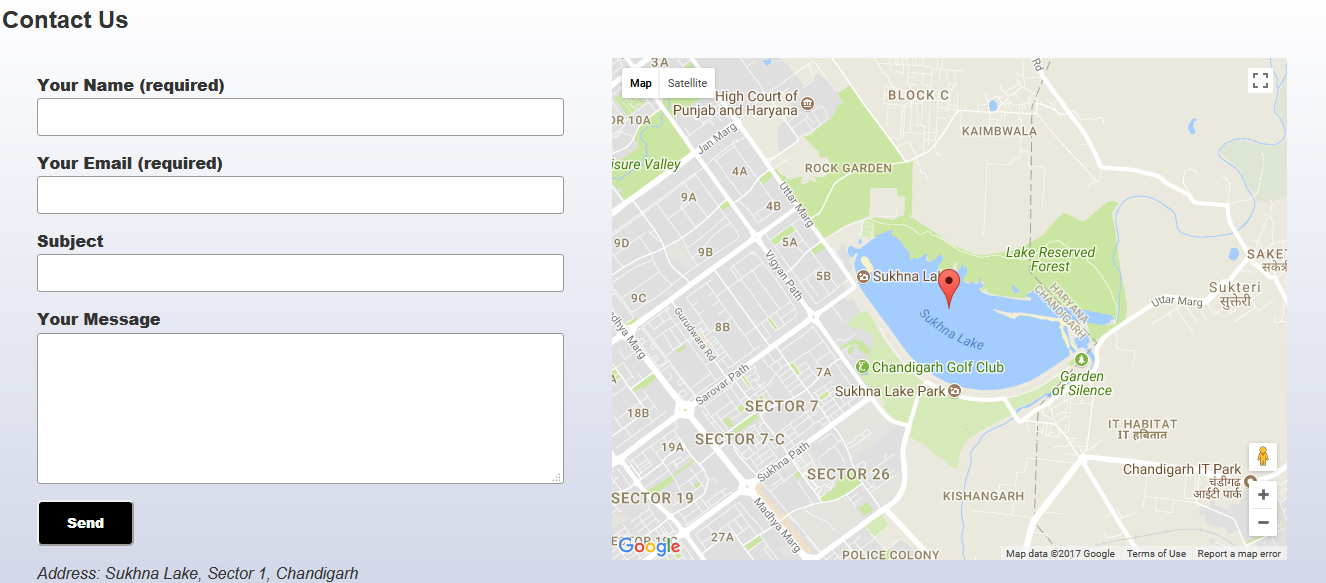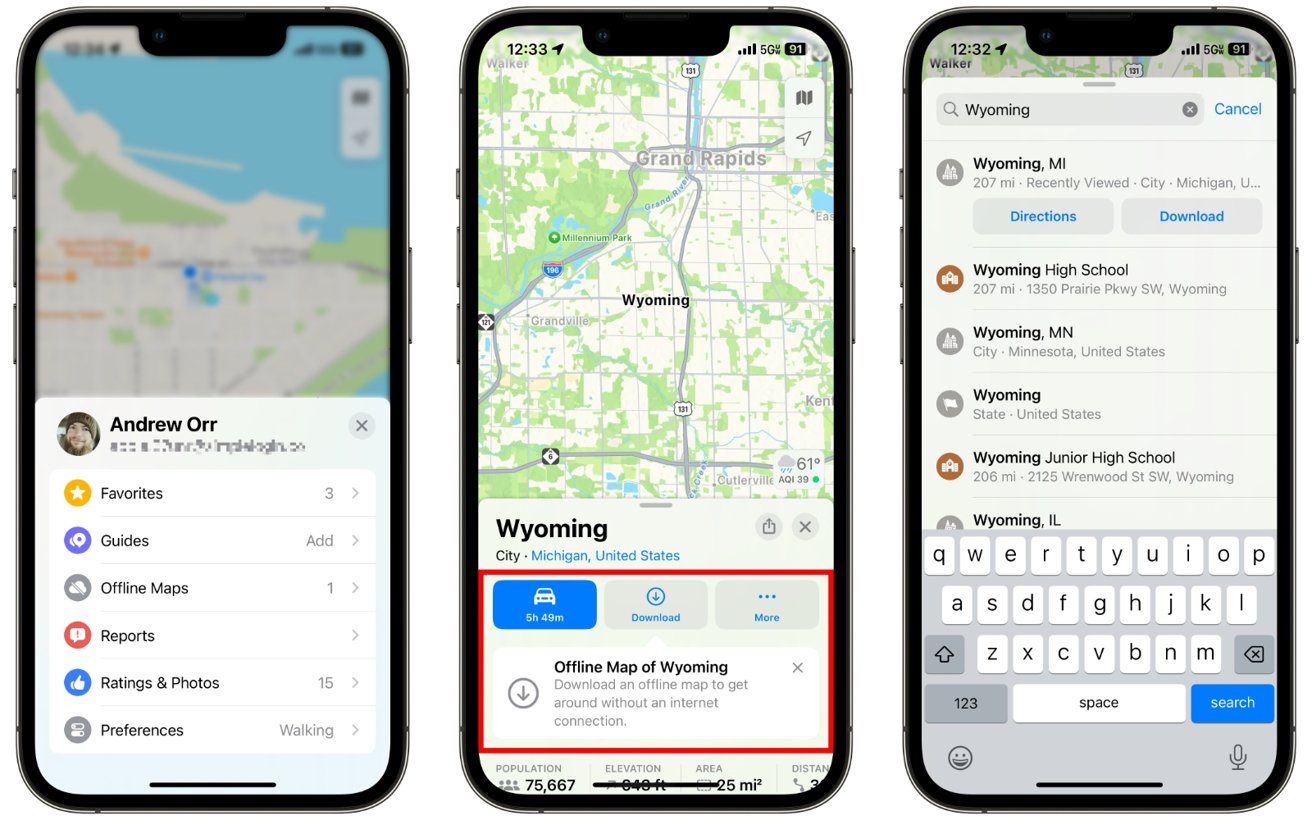What is Zoom Info
Zoom Info is a powerful B2B (business-to-business) database and intelligence platform that provides companies with access to accurate and up-to-date information on potential customers, target markets, and industry trends. It is designed to help businesses streamline their sales and marketing efforts, identify new opportunities, and make more informed business decisions.
Using advanced algorithms and Machine Learning techniques, Zoom Info continuously collects and verifies data from a wide range of sources, including company websites, social media profiles, press releases, and public records. This data is then organized and segmented into a comprehensive database that covers millions of companies and professionals around the world.
With Zoom Info, businesses can easily search and filter this vast database to find relevant leads, uncover key decision-makers, and gain valuable insights into their target markets. The platform provides detailed information on company profiles, contact details, job titles, industry affiliations, and more, allowing users to create targeted and personalized marketing campaigns and improve their sales outreach.
Moreover, Zoom Info offers several integrated tools and features to enhance the user experience and maximize productivity. These include CRM integration, email verification, data enrichment, lead scoring, and prospecting automation. The platform is also easily accessible through a user-friendly web interface or can be integrated into existing business applications through APIs.
Whether you are a sales representative looking for new leads, a marketer seeking to understand your target audience better, or an executive wanting to stay informed about industry trends, Zoom Info can provide you with the valuable data and actionable insights needed to drive your business forward.
How Does Zoom Info Work
Zoom Info employs a sophisticated data collection and verification process to ensure the accuracy and relevance of the information it provides. Here’s a breakdown of how Zoom Info works:
- Data Collection: Zoom Info utilizes advanced web crawling technology to scan millions of websites, news articles, press releases, and social media profiles. This allows the platform to gather comprehensive data about companies, including their industry, size, location, contact details, and key personnel.
- Data Verification: To ensure the accuracy of the information, Zoom Info combines automated processes with human verification. Automated algorithms cross-reference data from multiple sources, while a team of researchers validates and updates the information manually. This hybrid approach ensures that the data is constantly verified and updated.
- Data Enrichment: In addition to basic company information, Zoom Info enriches its database with additional data points. This includes job titles and responsibilities of key personnel, company financials, technographic data, social media profiles, and more. This enriched data enables users to create more targeted and personalized marketing campaigns.
- Search and Filtering: Zoom Info provides a user-friendly search interface that allows users to search and filter the database based on specific criteria. Users can narrow down their search based on industries, company size, location, job titles, and other relevant parameters. This enables businesses to find their ideal target audience effortlessly.
- Integration and Automation: Zoom Info offers seamless integration with popular CRM (Customer Relationship Management) platforms, allowing users to import and export data easily. This integration enables businesses to streamline their sales and marketing processes, automate lead generation, and track the success of their campaigns.
By leveraging a combination of advanced technology, rigorous verification processes, and data enrichment, Zoom Info empowers businesses to access accurate and relevant data on their target audience. This data-driven approach enables companies to make informed business decisions, improve their sales strategies, and maximize their marketing efforts.
Features of Zoom Info
Zoom Info offers a range of powerful features that enable businesses to optimize their sales and marketing efforts and gain valuable insights into their target markets. Here are some key features of Zoom Info:
- Advanced Search: Zoom Info provides an intuitive search interface that allows users to search for companies and contacts based on specific criteria. Users can easily filter their search results by industry, company size, location, job titles, and more, enabling them to target their ideal audience effectively.
- Company Profiling: With Zoom Info, users can access detailed company profiles that provide essential information such as company size, revenue, industry, and key contact details. This allows businesses to gain a comprehensive understanding of their target market and identify high-potential prospects.
- Contact Database: Zoom Info’s extensive contact database provides accurate and up-to-date information on key decision-makers and influencers within companies. Users can access contact details such as email addresses, phone numbers, social media profiles, job titles, and more, facilitating seamless communication and targeted outreach.
- Data Enrichment: Zoom Info enhances its data with additional insights, such as technographic data, company financials, social media profiles, and more. This enriched data enables businesses to personalize their marketing campaigns, tailor their messaging, and gain a competitive edge in the market.
- CRM Integration: Zoom Info seamlessly integrates with popular CRM platforms, allowing users to import and export data easily. This integration streamlines the lead management process, enabling sales teams to manage their prospects effectively and track the success of their campaigns.
- Prospecting Tools: Zoom Info offers a set of prospecting tools that automate the lead generation process. These tools help businesses identify new prospects, build targeted contact lists, and streamline their outreach efforts, saving time and increasing efficiency.
- Data Verification: To ensure the accuracy and quality of its data, Zoom Info employs a combination of automated processes and manual verification by a team of researchers. This rigorous data validation process ensures that businesses have access to reliable and up-to-date information.
- Data Analytics: Zoom Info provides insightful analytics and reporting features that enable businesses to track the performance of their sales and marketing campaigns. Users can gain valuable insights into customer behavior, campaign effectiveness, and market trends to drive data-driven decision-making.
These features collectively make Zoom Info a comprehensive B2B intelligence platform that empowers businesses to find targeted leads, personalize their messaging, and optimize their sales and marketing strategies.
Pricing Plans of Zoom Info
Zoom Info offers flexible pricing plans to cater to the varying needs and budgets of different businesses. The pricing structure of Zoom Info is not publicly displayed on their website, as it is customized based on the specific requirements of each customer. However, here are some key factors that influence the pricing of Zoom Info:
- Number of Users: The cost of Zoom Info can vary based on the number of users within an organization. Companies can select different license types and determine the number of users who will have access to the platform. The more users included in the plan, the higher the cost.
- Data Coverage: Zoom Info provides various data coverage options, including regional, national, and global datasets. The extent of data coverage required by a business can impact the pricing. Companies targeting a specific region or with global operations may have different pricing considerations.
- Features and Functionality: Zoom Info offers different packages with varying features and functionality. Advanced features, such as technographic data, intent signals, and API access, may be available in higher-tier plans, which can result in a higher cost.
- Data Refresh Rate: The frequency at which the data is refreshed in the Zoom Info database can also affect pricing. Real-time or more frequent data updates may be more expensive compared to plans with less frequent data refreshes.
- Contract Length: The duration of the contract can impact the pricing structure. Longer contract commitments may offer discounted rates compared to shorter-term plans.
- Customization and Support: Zoom Info provides customization options to meet specific business requirements. Additional customization or dedicated support services may be available at an extra cost.
It is worth noting that the pricing for Zoom Info can vary significantly depending on the specific needs of each customer. To get accurate pricing information, interested businesses are encouraged to reach out to the Zoom Info sales team directly. The sales team can provide a tailored quote based on the company’s requirements and assist in selecting the most suitable plan to meet their needs and budget.
Factors That Affect Zoom Info Cost
The cost of using Zoom Info can vary based on several factors that influence the pricing structure. Understanding these factors can help businesses determine the investment required and choose the most suitable plan for their needs. Here are key factors that affect the cost of Zoom Info:
- Number of Users: The number of users who will have access to the Zoom Info platform can impact the cost. Companies can choose the appropriate license type and determine the number of users needed based on their team size and requirements. Adding more users to the plan may increase the overall cost.
- Data Coverage: Zoom Info offers different data coverage options, including regional, national, and global datasets. The extent of data coverage required by a business can affect the pricing. Companies with global operations or specific regional targets may have different pricing considerations based on their data needs.
- Features and Functionality: Zoom Info provides various packages with different features and functionality. Advanced features like technographic data, intent signals, and API access may be available in higher-tier plans, which can result in a higher cost. Businesses should assess the features they require and choose a plan that aligns with their specific needs and budget.
- Data Refresh Rate: The frequency at which the data in the Zoom Info database is refreshed can impact pricing. Plans with real-time or more frequent data updates may be priced higher than those with less frequent data refreshes. Businesses should consider the importance of data accuracy and freshness when assessing the cost implications.
- Contract Length: The duration of the contract can also influence the pricing structure. Long-term commitments, such as annual contracts, may offer discounted rates compared to shorter-term plans. Companies should evaluate their long-term data needs and consider the cost advantages of longer contract commitments.
- Customization and Support: Zoom Info provides customization options tailored to meet specific business requirements. Additional customization or dedicated support services may come at an additional cost. Businesses should assess whether customization or enhanced support is necessary for their operations and factor in the associated costs.
It’s essential for businesses to carefully evaluate these factors and their specific requirements to determine the cost implications of using Zoom Info. To get accurate pricing information and explore the best plan options, it is recommended to reach out to the Zoom Info sales team. The sales team can provide personalized guidance, offer a tailored quote based on the company’s needs, and help businesses select the most appropriate plan to optimize their investment in Zoom Info.
Zoom Info Cost Comparison with Other Similar Tools
When considering the cost of Zoom Info, it’s important to compare it with other similar tools in the market to determine its value and affordability. Here, we compare Zoom Info’s pricing with those of other similar tools to provide a broader perspective:
1. LinkedIn Sales Navigator: LinkedIn Sales Navigator is a popular sales intelligence tool that helps businesses find and engage with potential prospects on LinkedIn. While both Zoom Info and LinkedIn Sales Navigator provide access to contact information and sales insights, Zoom Info offers a more extensive B2B database and data enrichment capabilities. However, LinkedIn Sales Navigator’s pricing is usually more affordable, making it suitable for smaller businesses with more focused LinkedIn prospecting needs.
2. DiscoverOrg: DiscoverOrg (now part of ZoomInfo) is another well-known B2B data provider that offers a comprehensive database of company and contact information. Before the acquisition, DiscoverOrg was considered a higher-priced alternative to Zoom Info. However, with the integration of the two platforms, pricing plans may vary based on specific use cases and requirements.
3. Clearbit: Clearbit is a data enrichment platform that provides valuable insights for sales and marketing teams. While Clearbit offers a range of valuable features, its pricing structure tends to be more cost-effective compared to Zoom Info. Clearbit’s focus on data enrichment and lead enrichment makes it an attractive choice for teams looking to enhance their existing databases without the need for a comprehensive B2B data solution.
4. InsideView: InsideView is a sales intelligence platform that helps businesses find, target, and engage with potential customers. Similar to Zoom Info, InsideView offers access to a broad B2B database and provides data enrichment capabilities. Pricing for InsideView is typically in the same range as Zoom Info, making it a comparable option for companies seeking a comprehensive sales intelligence solution.
It’s important to note that pricing for these tools can vary depending on factors such as the number of users, data coverage, features, and customization options. Each tool offers a unique set of features and strengths, tailored for different business needs and budgets. Therefore, it’s crucial to evaluate the specific requirements of your business and compare the costs and benefits of each tool to determine the best fit for your organization.
Additionally, it is recommended to reach out to the respective sales teams for accurate pricing information, as these tools often offer customized plans based on individual business needs.
Is Zoom Info Worth the Cost?
When evaluating the cost of using Zoom Info, it’s crucial to assess whether the benefits and features justify the investment. Here are important factors to consider when determining if Zoom Info is worth the cost:
1. Comprehensive B2B Database: Zoom Info offers access to a vast B2B database with millions of companies and contacts. The extensive coverage allows businesses to efficiently identify and target their ideal audience. If your sales and marketing strategies heavily rely on accurate and up-to-date data, the comprehensive database provided by Zoom Info can greatly enhance your efforts and improve your ROI.
2. Data Accuracy and Verification: Zoom Info’s data verification process combines automated algorithms with manual verification by a team of researchers. This ensures that the information is reliable, accurate, and continually updated. If data accuracy is crucial to your business operations and decision-making, the data verification methods employed by Zoom Info can provide peace of mind.
3. Advanced Features and Insights: Zoom Info offers a range of advanced features and insights that can elevate your sales and marketing efforts. From data enrichment and technographic data to prospecting tools and data analytics, these features allow you to personalize campaigns, identify new opportunities, and gain valuable insights into your target market. The availability of these features can provide a competitive edge and help you achieve better results.
4. Integration and Efficiency: Zoom Info seamlessly integrates with popular CRM platforms, streamlining data management and lead generation processes. This integration can improve efficiency by eliminating manual data entry, facilitating better lead nurturing, and enabling teams to work more collaboratively. If your organization already uses a CRM system, the integration capabilities of Zoom Info can enhance your workflow and save valuable time and effort.
5. Customization and Support: Zoom Info offers customization options and dedicated support services to meet specific business requirements. This level of customization enables you to tailor the platform to suit your unique needs and maximize its value. Additionally, having access to dedicated support can provide assistance and guidance when needed, ensuring that you are receiving the most value from your investment.
Considering these factors, the decision of whether Zoom Info is worth the cost ultimately depends on your specific business needs and goals. If having access to comprehensive and accurate B2B data, advanced features, and efficient integration aligns with your objectives, and if the cost fits within your budget, Zoom Info can be a valuable investment that can bring significant returns for your sales and marketing efforts.
Tips to Minimize Zoom Info Cost
While Zoom Info provides valuable data and insights for businesses, it’s understandable that managing costs is a significant consideration. Here are some tips to help minimize Zoom Info costs while still benefiting from its features:
- Optimize User Licenses: Evaluate the number of users who genuinely need access to Zoom Info. Minimizing the number of user licenses to the essential team members can help reduce costs while ensuring that those who truly require the platform’s functionalities have access.
- Customize Data Coverage: Assess your target market and focus on the regions that are most relevant to your business. By customizing your subscription to specific regional or industry-focused data coverage, you can avoid paying for unnecessary data that may not be useful to your operations.
- Choose the Right Feature Set: Consider the features and functionalities offered by Zoom Info and prioritize those that align with your business objectives. Opting for a plan that includes the essential features you need, rather than advanced ones you may not require, can help save costs without compromising on the necessary capabilities.
- Review Data Refresh Rate: Assess the frequency of data updates needed for your business. If real-time or frequent data updates are not critical, opting for a plan with less frequent data refreshes can help reduce costs. However, ensure that the refresh rate still aligns with your data accuracy requirements.
- Consider Contract Length: Evaluate the benefits of committing to a longer contract with Zoom Info. Longer-term contracts may offer discounted rates compared to shorter-term plans. However, carefully assess your business needs and the flexibility required before committing to an extended contract length.
- Regularly Update and Cleanse your Database: Periodically review and clean up your existing database to minimize redundancy. By keeping your database up to date and removing outdated or irrelevant contacts, you can make the most of your Zoom Info subscription by focusing on quality leads and saving on unnecessary data storage.
- Stay in Touch with Zoom Info Support: Leverage the support resources provided by Zoom Info. Stay connected with their support team to understand new features, best practices, and any cost-saving tips they may provide. Utilizing their expertise can help you optimize your usage and ensure you’re getting the most value for your investment.
By implementing these tips, you can effectively manage and minimize your Zoom Info costs while still leveraging its powerful features and benefits. Remember to regularly evaluate your usage, needs, and business objectives to ensure that your subscription aligns with your requirements and offers the best possible value for your investment.
Conclusion
Zoom Info is a robust B2B database and intelligence platform that offers businesses valuable insights and accurate data to power their sales and marketing efforts. While the cost of Zoom Info may vary based on factors such as the number of users, data coverage, features, and contract length, its benefits can significantly impact an organization’s success.
With its comprehensive B2B database, advanced search capabilities, data enrichment features, and seamless CRM integration, Zoom Info equips businesses with the tools needed to identify target audiences, personalize marketing campaigns, and drive revenue growth. The platform’s commitment to data accuracy and verification ensures that users have access to reliable and up-to-date information.
When assessing the cost of Zoom Info, it’s essential to evaluate your specific business needs and the value that the platform can deliver. Consider factors such as the quality and depth of the data, the customization options available, and the level of support provided. By aligning these factors with your organization’s objectives, you can determine if Zoom Info is worth the investment.
Furthermore, implementing strategies to minimize costs, such as optimizing user licenses, customizing data coverage, and selecting the appropriate feature set, can help achieve a cost-effective utilization of the platform. Regularly updating and cleansing your database, staying in touch with Zoom Info support, and leveraging their expertise also contribute to maximizing the value of your subscription.
In conclusion, Zoom Info provides organizations with the data, insights, and tools necessary to streamline sales and marketing efforts, make informed business decisions, and accelerate growth. By carefully evaluating the cost and benefits, customizing your usage, and implementing cost-saving measures, Zoom Info can be a valuable investment that propels your business forward in the competitive B2B landscape.

























